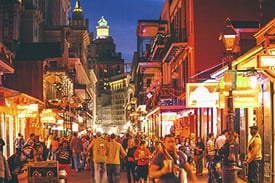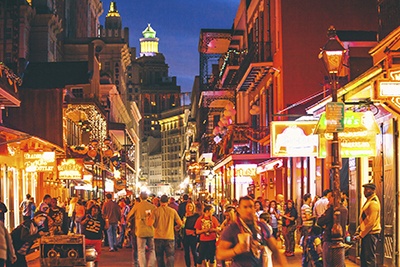
This city we live in tends to let her weirdness hang out for all to see. You know about the French Quarter and Bourbon Street and po’ boys and even second lines, but the Crescent City has other quirks you may not have heard about. Here are a few of the things that make our city so interesting:
- With all the darkness and corners and swampy mists within the city limits it’s no wonder that voodoo in the United States started right here. New Orleans was also the home of the Voodoo Queen Marie Laveau, who was known to have performed rituals and exorcisms in the 1800s. If you haven't visited the New Orleans Historic Voodoo Museum on Dumaine Street, give it a try.
- Speaking of religion, the St. Louis Cathedral, on Pere Antoine Alley, is the longest continuously operating cathedral in the country.
- Before the U.S. became all the states united, Napoleon Bonaparte and the French sold New Orleans and surrounding areas to Thomas Jefferson and the newly formed United States of America in what is now known as the Louisiana Purchase. All told, the transaction cost $4,875,000.
- You know that jazz was born and raised here, but did you know that another musical traditional first saw the light in New Orleans? In 1796, Opera was performed in the U.S. in this very city.
- Another pastime introduced in our city was the game of craps, brought here by a Frenchman, Bernard de Marigny. It is thought the name "craps" came from the French word "crapaud" which means frog, because Americans associated the French with eating frogs.
- During the Civil War, New Orleans was the largest city in the Confederate States of America with more than 100,000 residents. The Battle of New Orleans, and its capture by the Union was a catastrophe for the Confederacy, as it gave the Union control of a major transportation route, the Mississippi River.
- City Park is the largest municipal park in the United States. Here where the Dueling Oaks reside is the place where Creole gentlemen would meet to settle disputes with duels.
- And finally, in one of the most ironic historic moves, the city's founder, Jean-Baptiste Le Moyne, founded New Orleans in its location because he thought it to be safe from hurricanes.
So next time you have friends visit your New Orleans apartment, take them to Bourbon Street, finish up at Cafe du Monde and then regale them with your knowledge about the city.




Your Pets